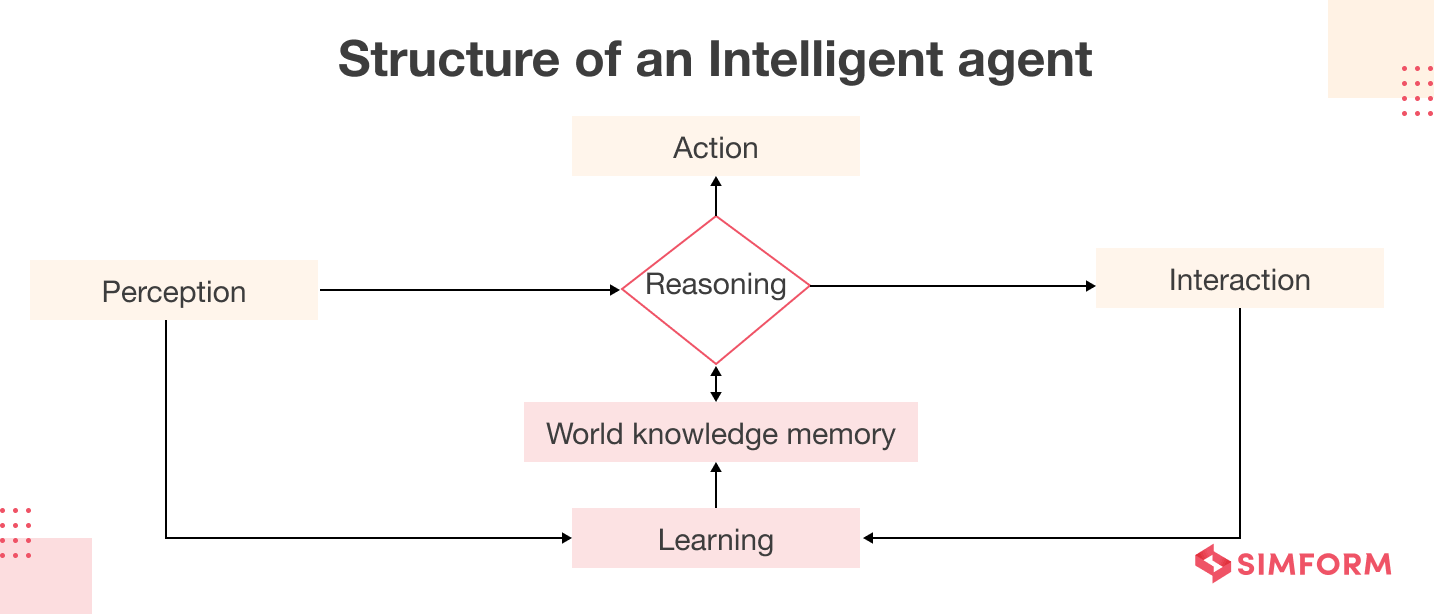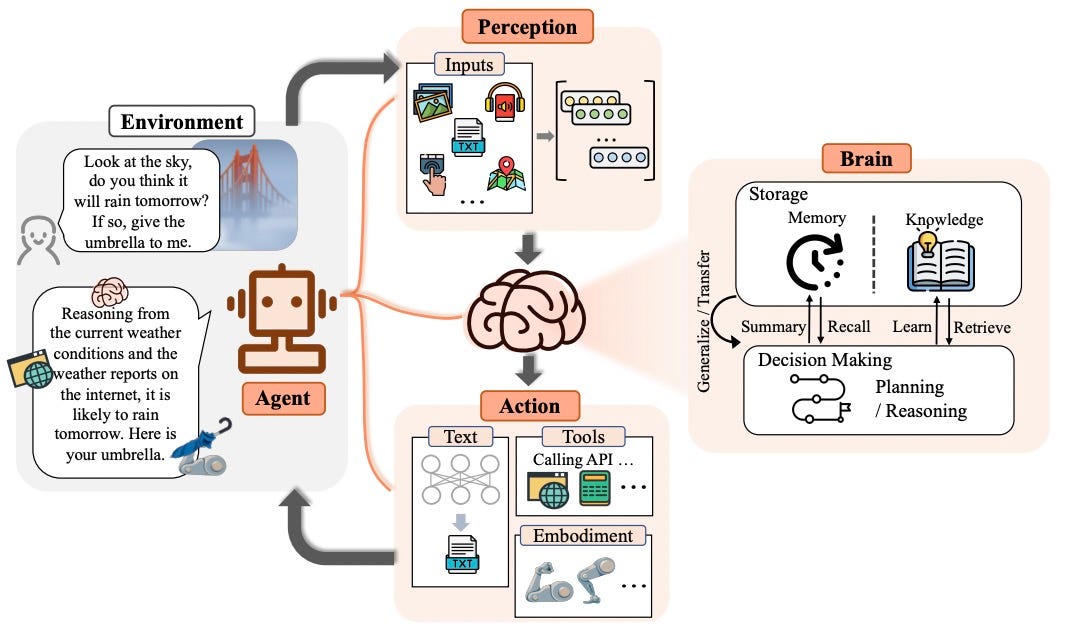AI Agent Research Report: Current Status in 2024 and Outlook in 2025
The AI Agent, an intelligent entity primarily based on Large Language Model (LLM), possesses the unique ability to perceive its environment, make decisions, and take actions autonomously. Unlike traditional large models that require clear instructions, the AI Agent can independently decompose tasks, plan actions, and utilize tools to execute tasks efficiently upon receiving target instructions. Its key strength lies in its capacity to think and act independently, setting it apart from early voice assistants like Siri and Microsoft's Copilot. The AI Agent functions as a primary driver capable of continuously enhancing task efficiency and accuracy through autonomous learning, feedback adjustment, and long-term optimization.
Its key strength lies in its capacity to think and act independently, setting it apart from early voice assistants like Siri and Microsoft's Copilot. The AI Agent functions as a primary driver capable of continuously enhancing task efficiency and accuracy through autonomous learning, feedback adjustment, and long-term optimization.
The operational principle of the AI Agent revolves around four core capabilities: perception, analysis, decision-making, and execution. It starts by perceiving the environment through sensors or data interfaces to gather external information. Subsequently, it leverages analytical tools, such as large language models, to extract valuable features and patterns.  Based on the analysis findings, the AI Agent devises a reasoned action plan and translates decisions into specific actions to accomplish the target task. Short-term and long-term memory modules facilitate information storage and backtracking, enhancing its ability to tackle complex tasks.
Based on the analysis findings, the AI Agent devises a reasoned action plan and translates decisions into specific actions to accomplish the target task. Short-term and long-term memory modules facilitate information storage and backtracking, enhancing its ability to tackle complex tasks.
Accelerated Development in 2025
In 2025, the AI Agent industry experiences an accelerated growth phase. The industry chain encompasses computing power and hardware providers, data suppliers, algorithm developers, and large model creators like NVIDIA. The midstream sector focuses on AI Agent integration and platform services, while the downstream sector showcases diversified development around industry vertical applications and general intelligent entities. Both the C-end and B-end markets exhibit significant potential, with C-end applications concentrating on enhancing user experience and interaction convenience, and the B-end segment dedicated to driving enterprise intelligent transformation and facilitating business decision-making.
Major industry players have intensified their competition in AI Agent applications. Google has launched three AI Agent products—Project Astra (general purpose), Project Mariner (browser operation), and Jules (programming). OpenAI anticipates 2025 as the mainstream adoption year for AI Agents and plans to introduce innovative technologies like AGI, upgraded GPT-4o versions, and personalized features. NVIDIA's CEO foresees AI Agents emerging as the next robotics industry, creating substantial market value.
NVIDIA's CEO foresees AI Agents emerging as the next robotics industry, creating substantial market value.
The fusion of AI Agent technology with blockchain stems from the continual integration and advancement of blockchain and AI technologies. Blockchain, as a decentralized infrastructure, furnishes a reliable data record and transparent behavior verification mechanism for AI Agent operations.  The evolution of AI technology equips intelligent agents with sophisticated judgment and execution capabilities, enabling them to autonomously perform a range of economic activities, akin to a virtual economy operating autonomously.
The evolution of AI technology equips intelligent agents with sophisticated judgment and execution capabilities, enabling them to autonomously perform a range of economic activities, akin to a virtual economy operating autonomously.
Enhancing User Experience in Blockchain
The application of AI Agents in blockchain enhances user experience and operational efficiency, particularly in complex on-chain operations. The natural language interaction mode simplifies tasks like wallet management, DeFi investment plan selection, and cross-chain transactions, thereby reducing the learning curve for new users and enhancing operational efficiency and convenience.
AI Agent's effectiveness in de-emotionalization and precise execution positions it as a reliable alternative under specific conditions. Leveraging blockchain's data immutability provides AI with credible data sources, mitigating risks associated with data quality issues. Moreover, by utilizing on-chain data and computational power, AI Agents have the potential to reshape the existing incentive model and drive profound changes in the blockchain ecosystem.
AI Agent Framework and Development
The AI Agent framework serves as a fundamental tool for creating, training, and deploying intelligent agents, offering developers technical support for efficient agent development. These frameworks streamline development complexity through standardized environments and shared components, empowering developers to focus on innovative feature implementation.
The AI Agent framework is progressively integrating DeFi protocols, NFT projects, etc., to explore cross-platform collaboration and interoperability. By combining DeFi for optimizing investment strategies or developing intelligent NFT tools, the AI Agent framework fosters a more interconnected ecosystem, garnering significant market attention. Representative projects in this space include Ai16z, ARC, Swarms, and Zerebro.










